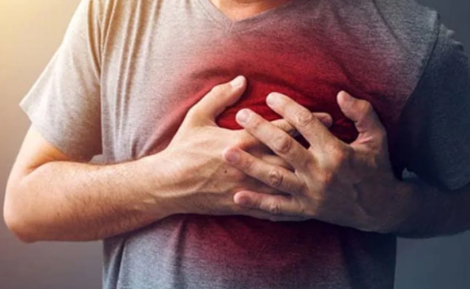Apart from concerns like high blood pressure, bad eating habits, lack of exercise, and stress, heart attacks are increasingly more common in persons in their 20s, 30s, and even 40s. Previously, they were mainly a problem for the elderly.
Winter is a season that most people find to be pleasant and liked, but it is also renowned for causing heart problems, therefore it will be crucial for you to take the best possible care of your heart at this time and live a healthy lifestyle.
Heart attacks are more common throughout the winter when the cold weather makes you more susceptible to respiratory issues, joint pain, and even heart illnesses.
It wouldn't be inaccurate to argue that heart attacks and winter go hand in hand. Dr. Praveen Kulkarni, the Senior Cardiologist at Global Hospital in Mumbai, stated in an interview with HT Lifestyle that people who smoke, lead a sedentary lifestyle, and have high blood pressure or high cholesterol are in danger of experiencing a heart attack during the winter. When discussing how the cold might affect your heart, he shared:
According to numerous studies, the sudden climatic change brought on by the unexpected temperature reductions during winter contributes to an increase in heart attacks, strokes, heart failure, cardiovascular problems, arrhythmias, and abnormalities. Vasoconstriction, also known as "vasoconstriction," occurs when the sympathetic nervous system of the body is engaged due to a chilly environment.
As a result, when blood pressure suddenly rises, the heart must work harder to pump blood to the body's other organs, which increases the risk of having a heart attack. Additionally, cold weather makes it harder to maintain body heat, which increases the risk of hypothermia, which can severely damage the blood arteries in the heart and trigger a heart attack.
Everyone should exercise caution, even those with existing heart issues. People who have already been diagnosed with heart problems or who have had a prior history of a heart attack are more likely to suffer a heart attack.
Additionally, the chilly weather makes it difficult to exercise once winter arrives, which is unhealthy for your heart. In addition, people choose comfort foods that can increase their risk of developing heart issues throughout the winter. However, these are a few of the unintentional causes of heart attacks. Another worrying aspect that can be difficult for your heart is air pollution.
Chest pain, nausea, vomiting, dizziness, and fatigue are the warning signs and symptoms of a heart attack. Do not disregard these warning signs, and seek immediate medical attention.
How to prevent heart attacks in the cold
According to Dr. Praveen Kulkarni,
• Adequate attire: Dress in layers appropriate for the weather. By doing this, you can keep warm during the cold and safeguard your heart. You will therefore need to put on caps, gloves, and sweaters.
• Work out every day: Physical activity helps maintain health, control body temperature, and boost immunity. Exercise only as directed by your doctor. But avoid working out while it's freezing outside. Additionally, it is preferable to stay inside and stay out of the harsh cold.
• Keep an eye on your blood pressure: Lowering your risk of having a heart attack means controlling your blood pressure and blood sugar levels.
• Decide on a healthy diet that is well-balanced: Include fresh fruits, vegetables, pulses, legumes, whole grains, berries, legumes, flaxseeds, spinach, carrots, and broccoli in your diet. Soups might help you remain warm. But stay away from canned, greasy, spicy, and junk food.
• Routine heart exams: Follow your doctor's advice and have a cardiac checkup every six months.
• Keep alcohol away: Avoid drinking too much.
• Cardiopulmonary resuscitation (CPR): Get to know the CPR procedure so you can aid someone having a heart attack.



